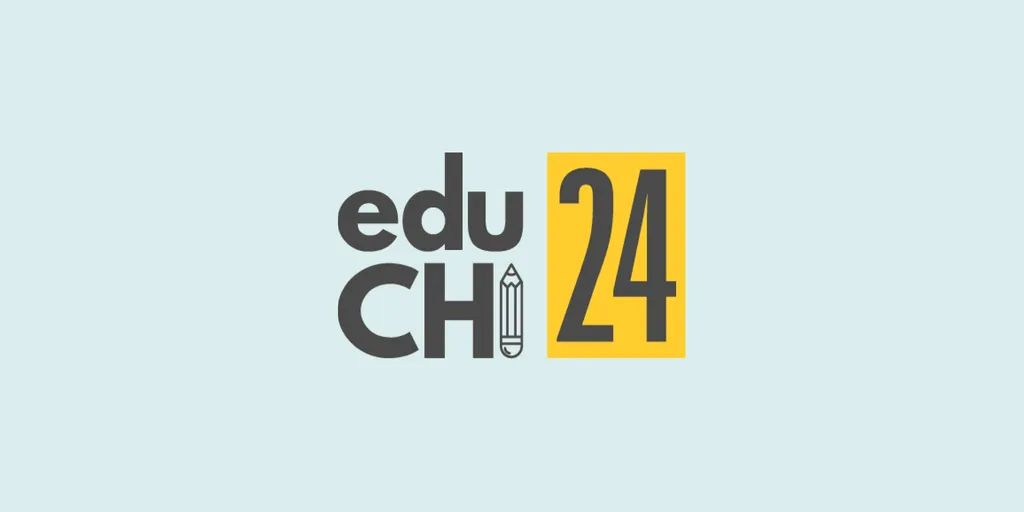Making (Non-)Sense Workshop
Making (Non-)Sense Workshop
In a collaborative effort, Rahel Flechtner from HfG Schwäbisch Gmünd and Jakob Kilian from the Köln International School of Design (KISD) conducted a workshop titled “Making (Non-)Sense.” This workshop was part of the joint research project KITeGG and took place in 2023 at both HfG Schwäbisch Gmünd and KISD, involving students from both institutions. The workshop aimed to equip design students with a hands-on, intuitive understanding of AI technologies, focusing on the development of sensor-based interactions. It was structured in two engaging segments that combined playful learning with practical experimentation.
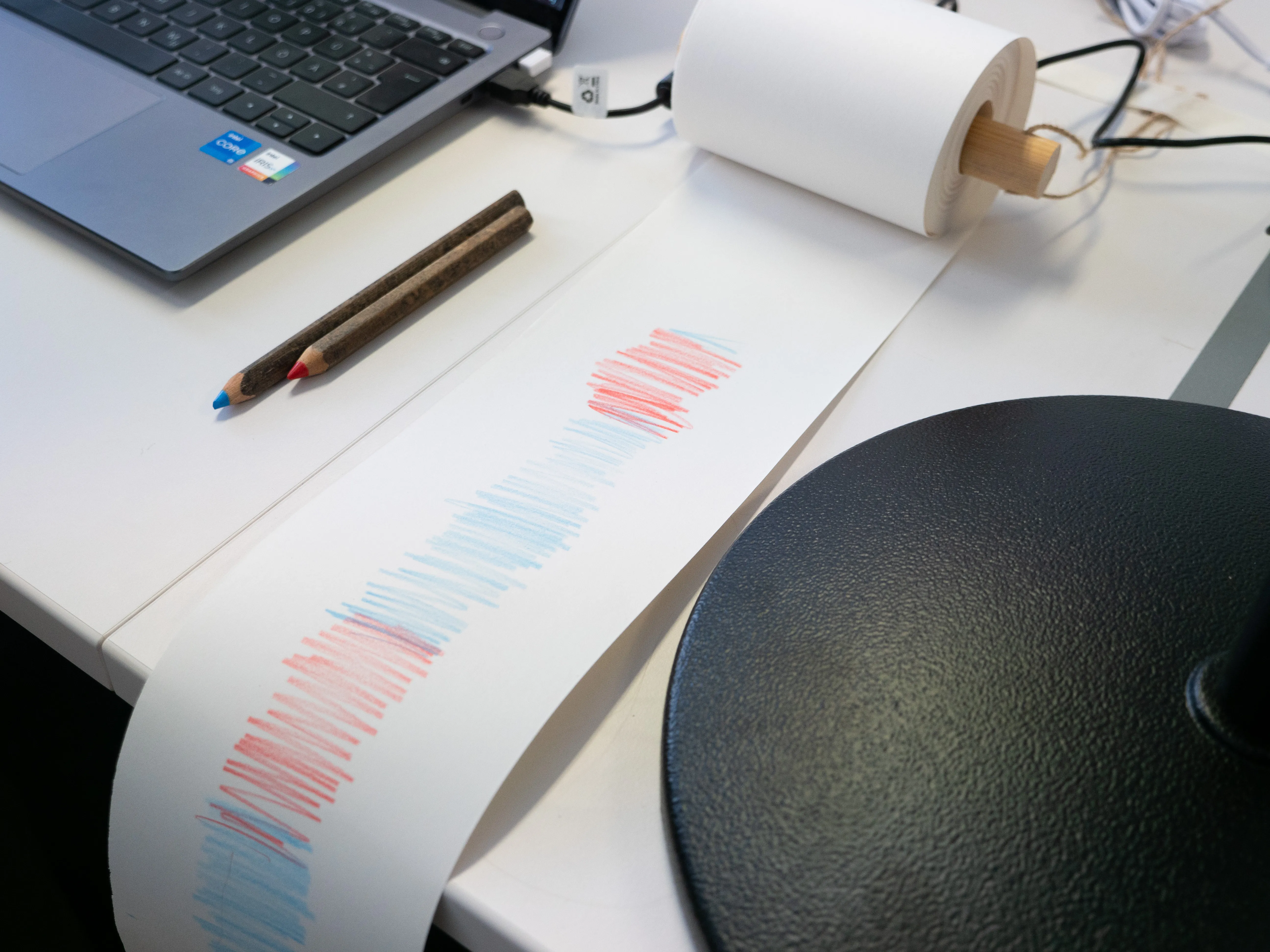
The first part of the workshop introduced students to the fundamentals of machine learning through a creative role-playing activity. In this exercise, students embodied the components of a sensor-based AI system. They took on various roles, such as human sensors and algorithms, to understand how sensor data is collected and processed. By acting out scenarios like an office setting, where sensor data was used to determine whether a person was working, students learned about data acquisition and model training in an accessible and engaging manner. This playful introduction aimed at demystifing the technical capabilities and limitations of AI, making the concepts more relatable.
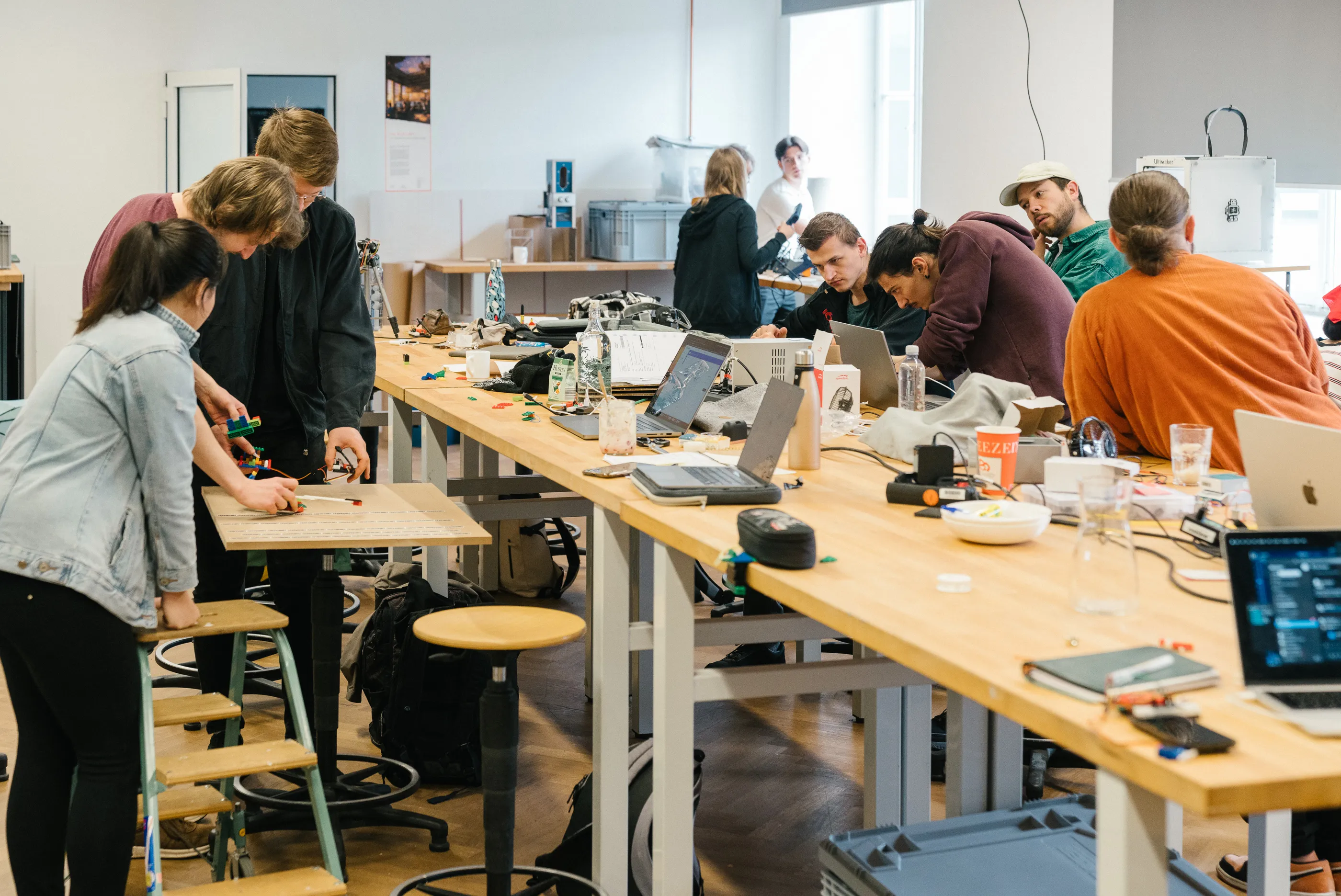
Building on this foundation, the second part of the workshop was an exploratory, hands-on session. Students worked with ready-made hardware and software modules, allowing them to dive deeper into the technology. They were introduced to tools that facilitated the code-free training of machine learning models, which could then be deployed on microcontrollers. This segment emphasized active engagement and creative ideation, encouraging students to experiment with sensor-based AI technology to develop new interactions. By collecting and preparing data, training models, and running them on microcontrollers, students gained practical experience in the iterative process of designing AI-driven interactions.
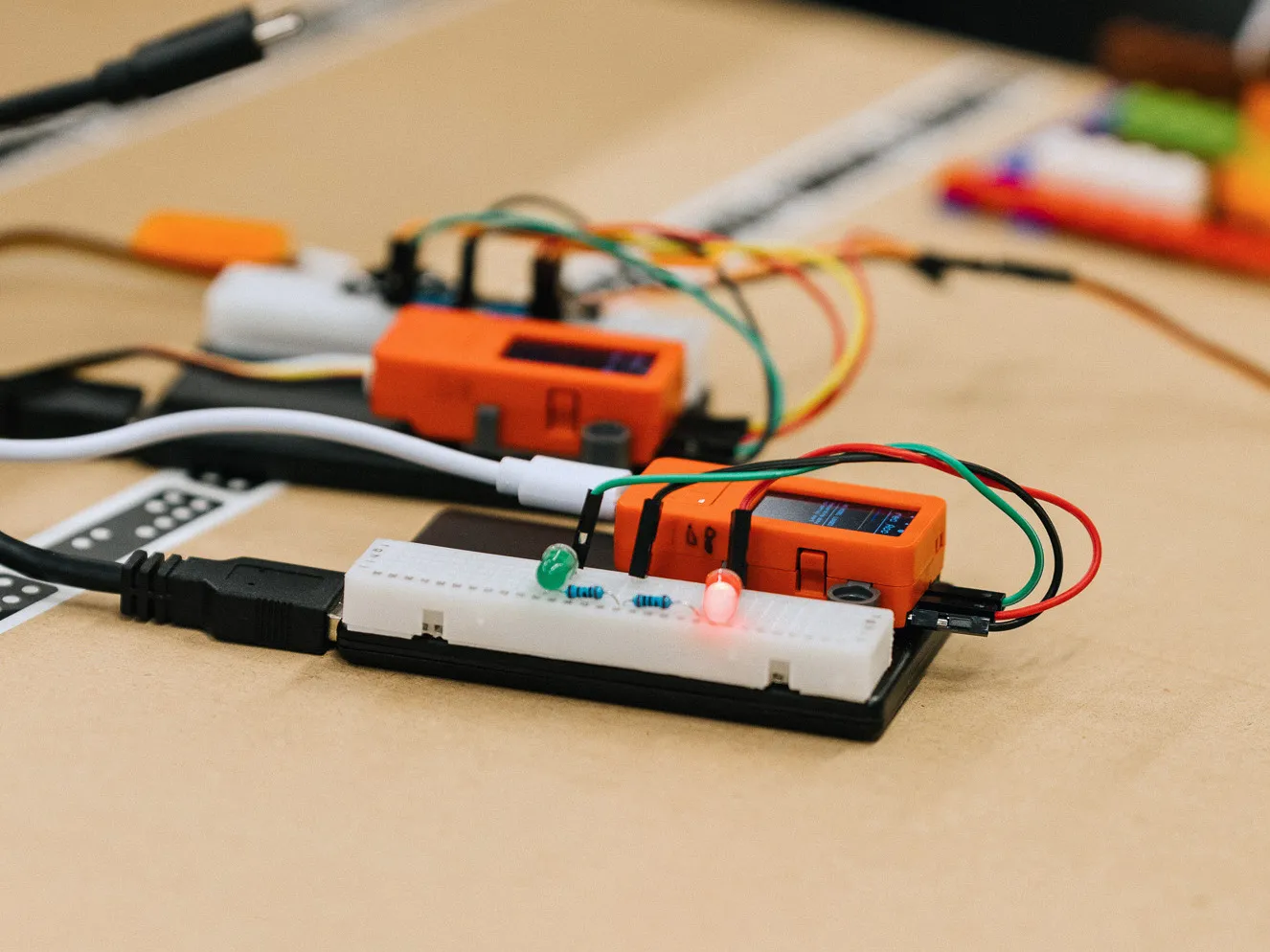 Technical setting of the workshop: ready-made sensing and acting modules and the online platform used for machine learning.
Technical setting of the workshop: ready-made sensing and acting modules and the online platform used for machine learning.
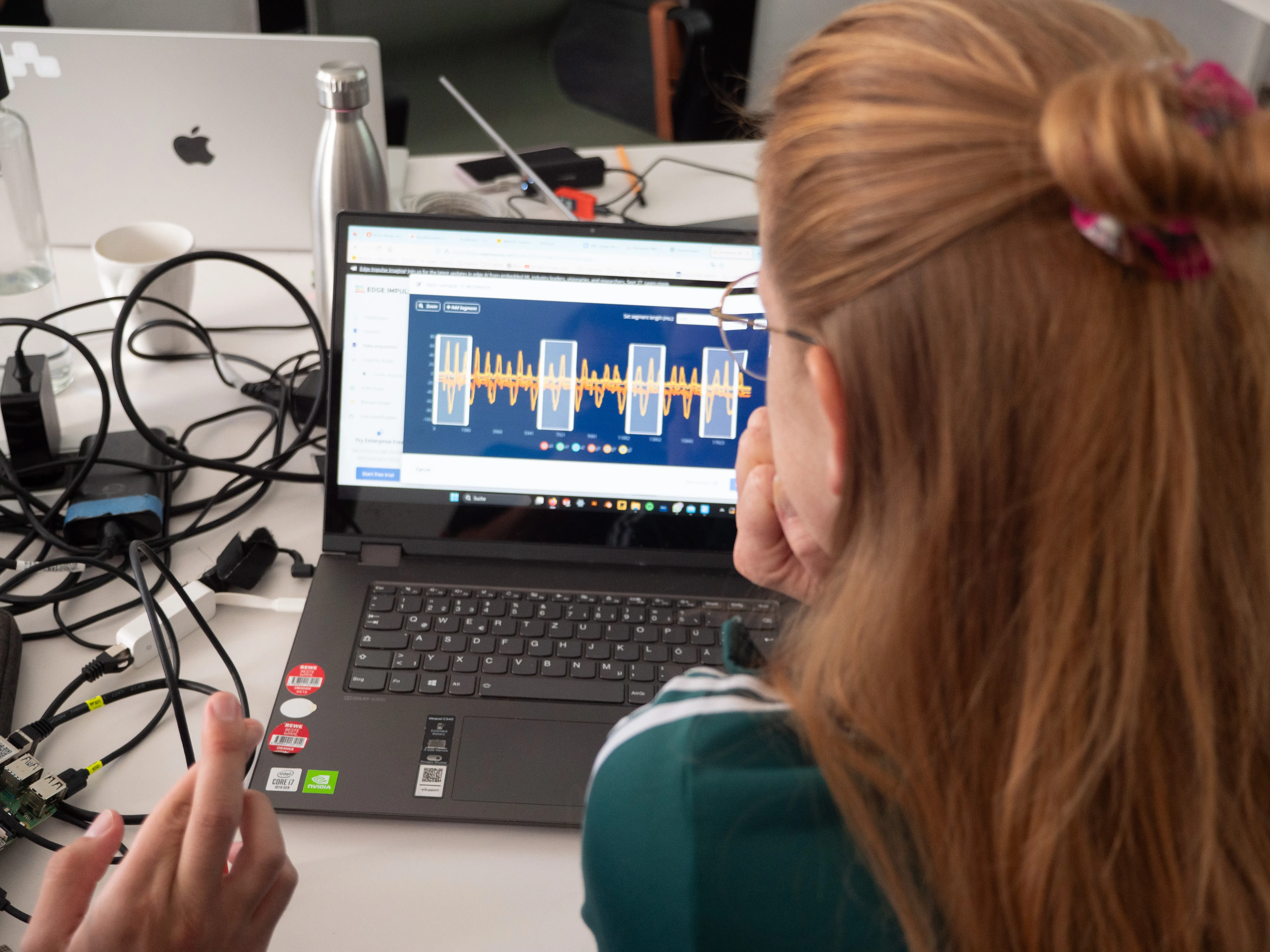
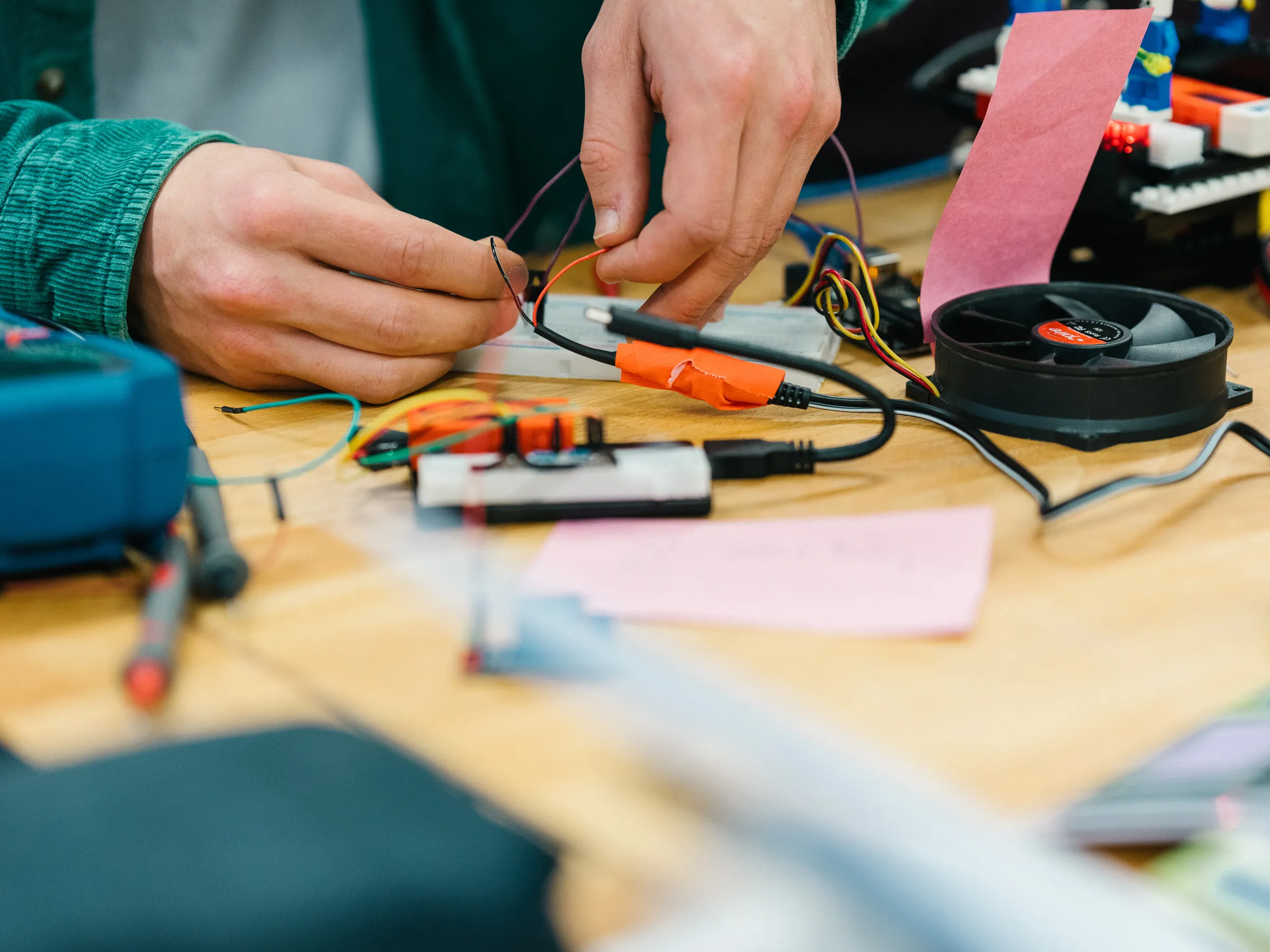
As the briefing of this hands-on experience, students were tasked with creating a link in an AI-driven Rube Goldberg machine-like chain reaction, integrating sensor-based modules that classify a specific input pattern to trigger a specific action. All links were then combined into a complete sequence, as shown in the image below, and presented in a group performance.
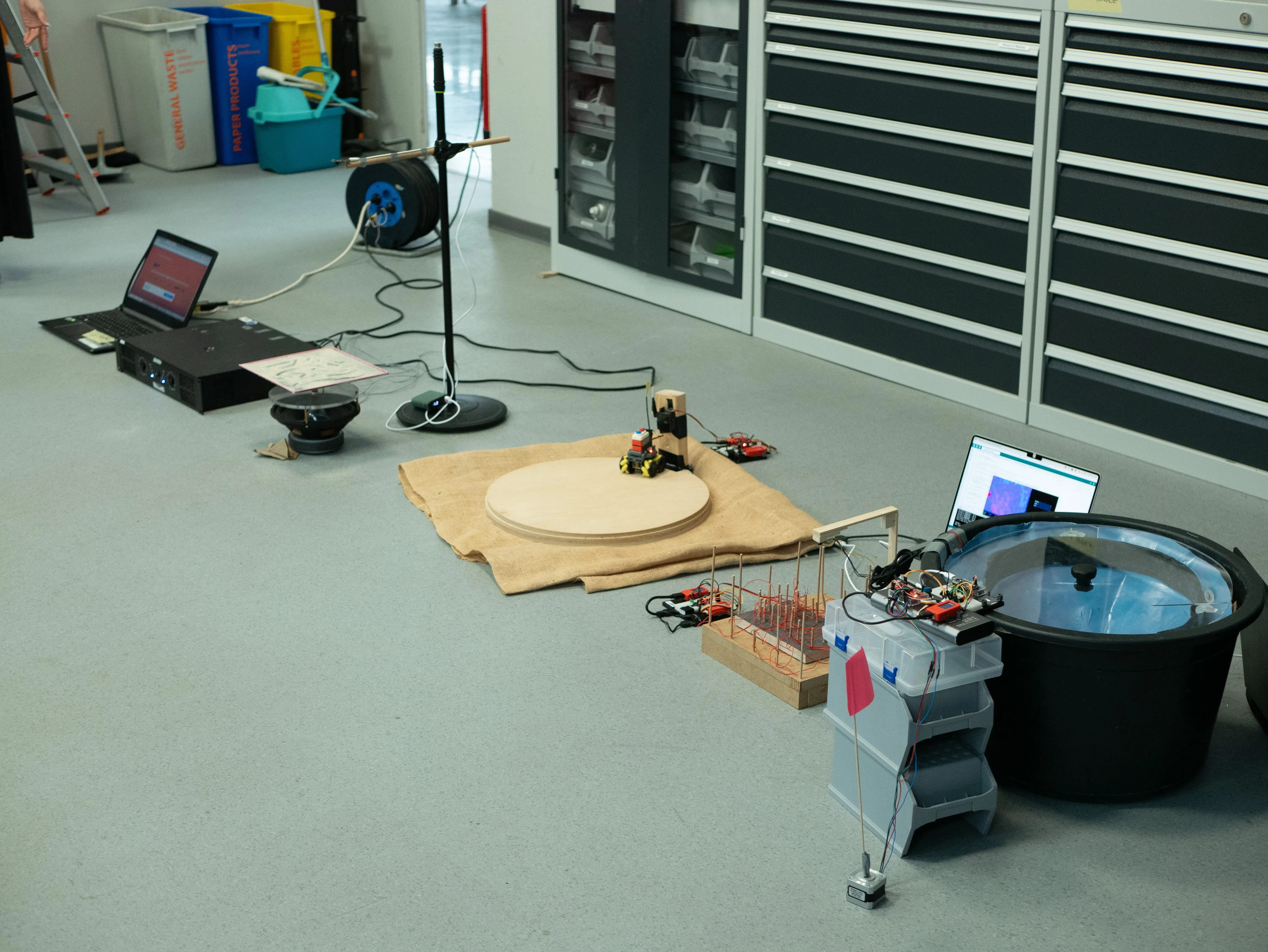 Impressions of the final AI-based Rube Goldberg machine.
Impressions of the final AI-based Rube Goldberg machine.
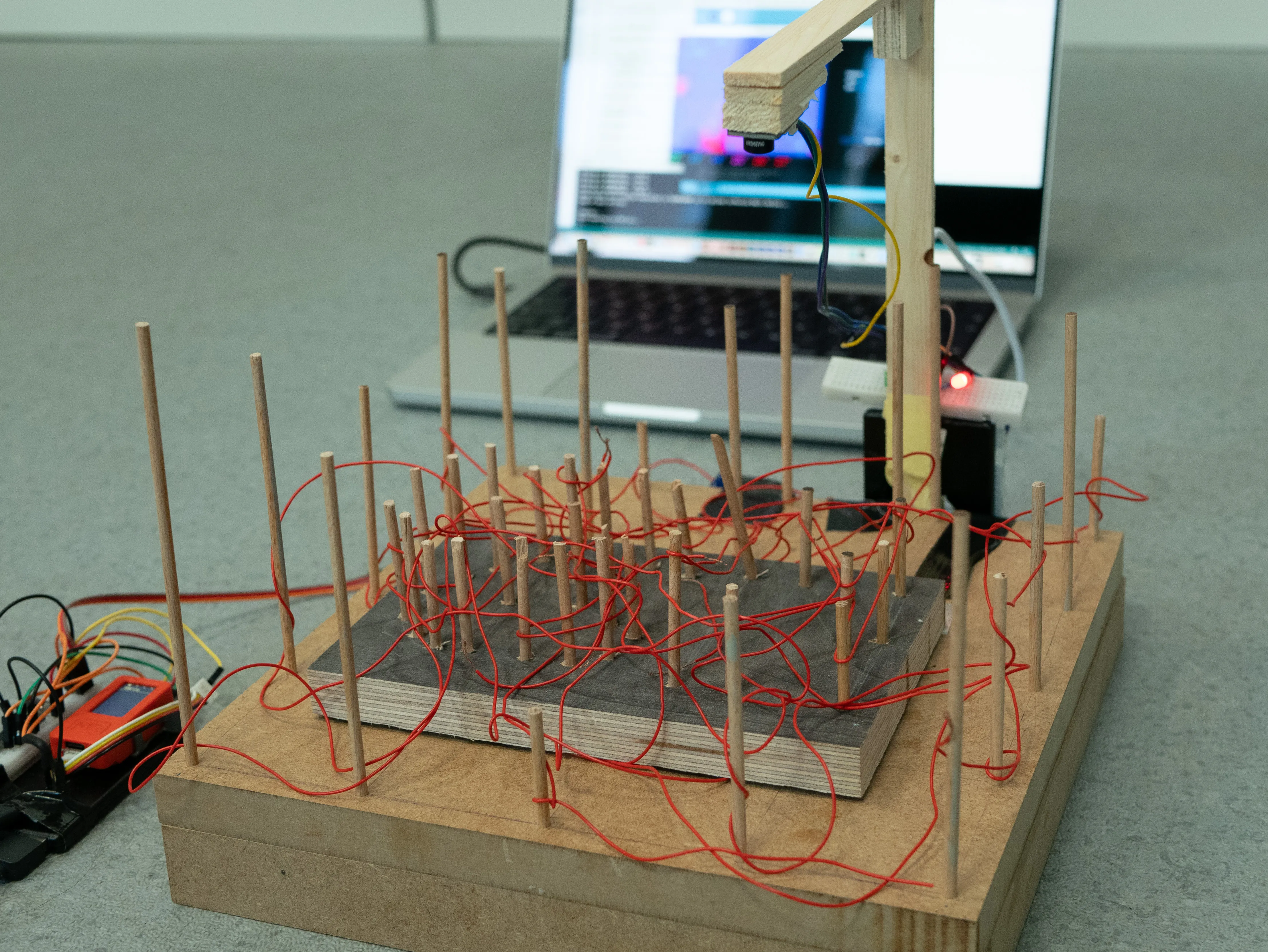
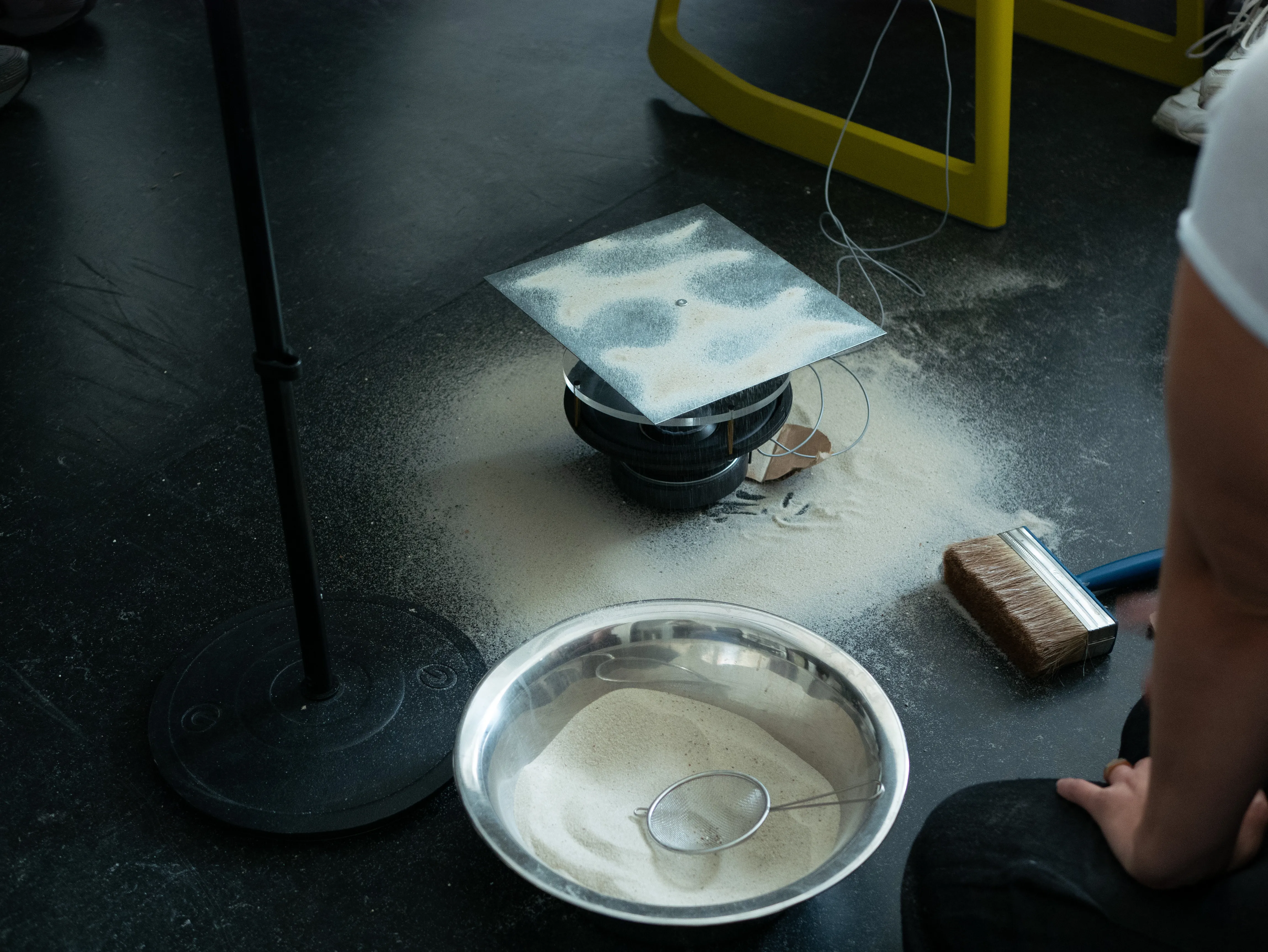
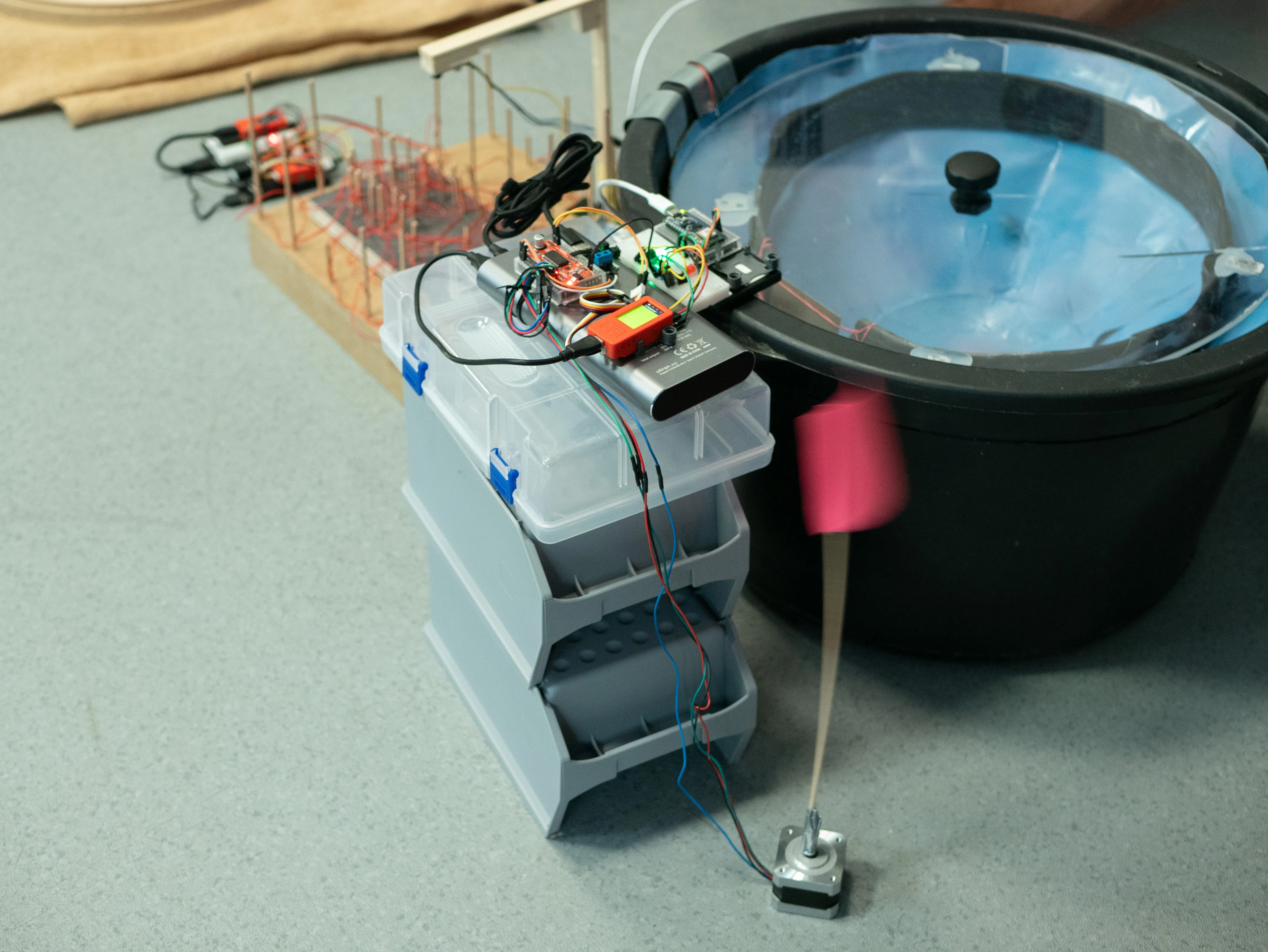
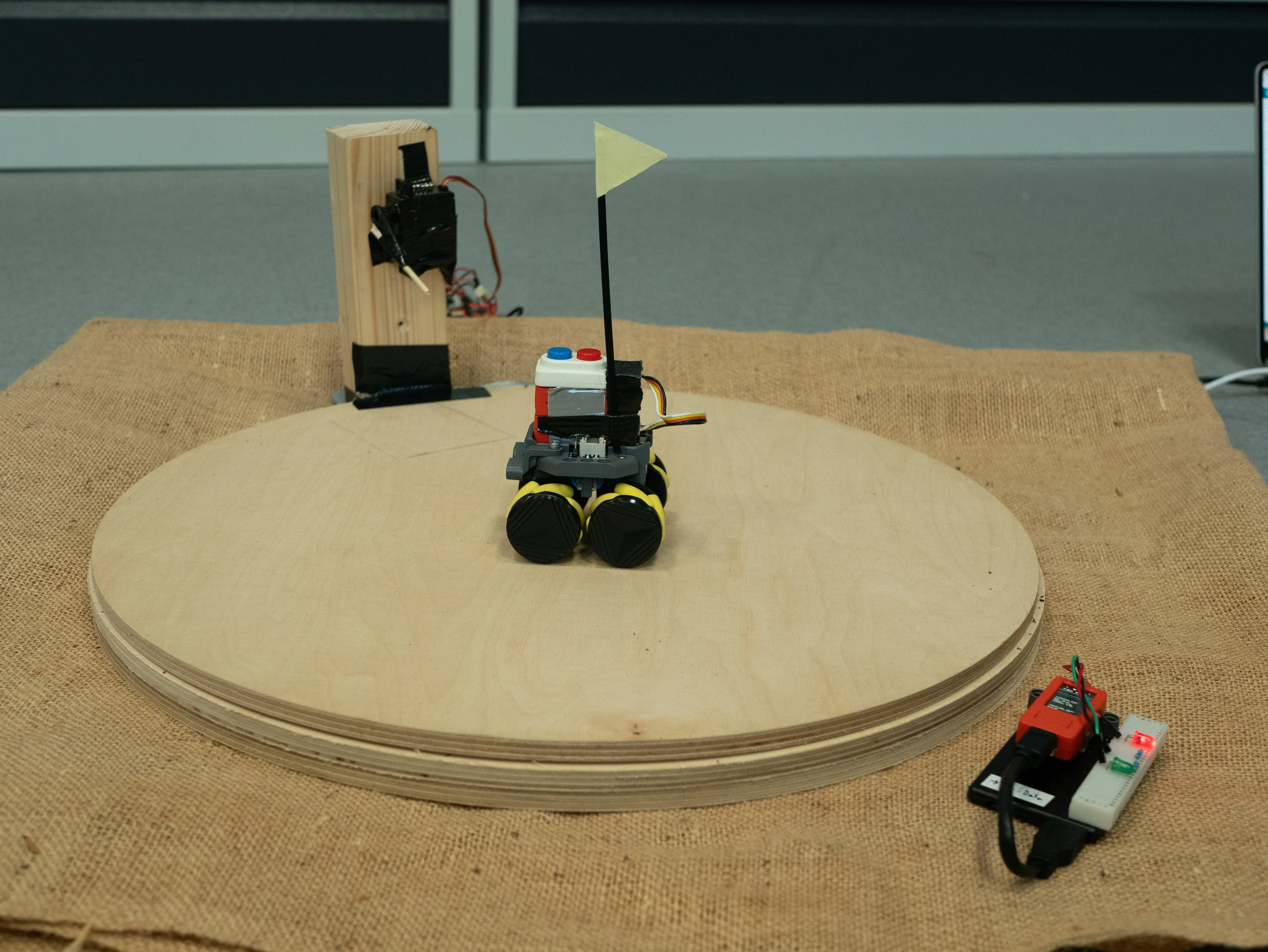
This workshop format not only aimed at increasing students’ technical literacy but also fostered their ability to communicate about AI topics and collaborate effectively with data scientists and AI experts. The course materials, available as open-source resources on GitLab, provide valuable tools for educators and students interested in similar interdisciplinary explorations. In June 2024, we also published a paper on the workshop format, explaining the process and content of the workshop in more detail. You can download the author’s version of the paper by clicking the yellow button on the top left of this article. Additionally, a video documenting the workshop offers a visual summary of the activities and outcomes. With our teaching format, “Making (Non-)Sense”, we contributed to the still open question of how to to teach AI in design. By combining playful role-playing with practical, hands-on experience, we see great potential for preparing future designers to integrate AI into creative and meaningful interactions.

